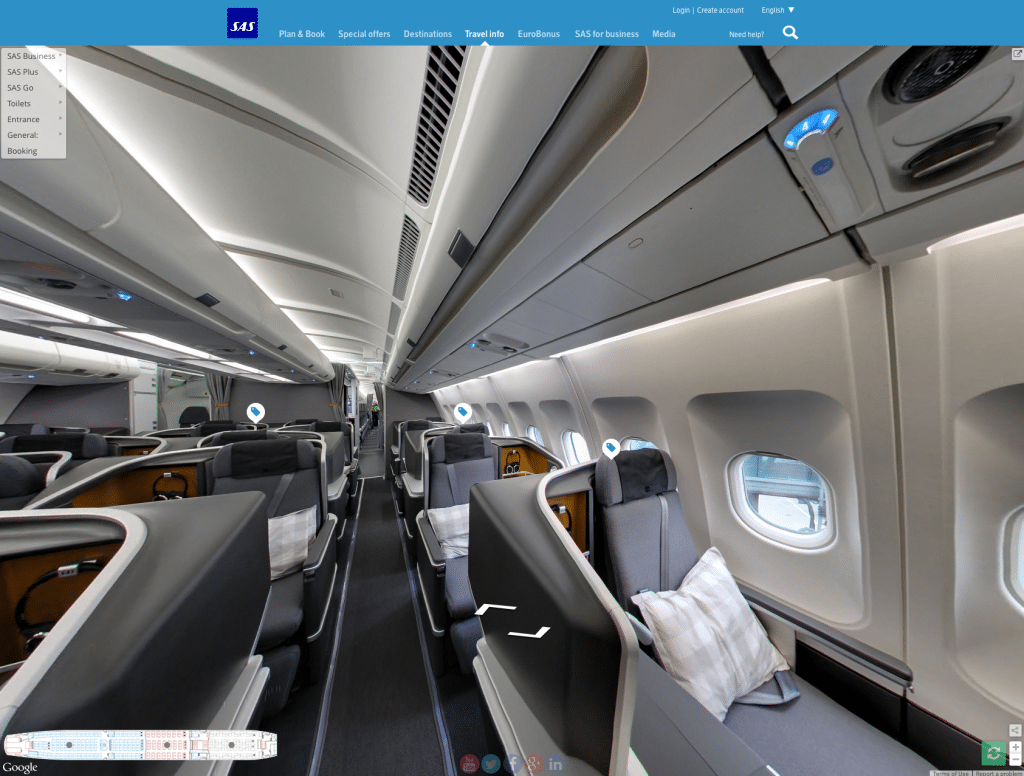Google Street View Comes to Planes With SAS's Interactive Tours

Skift Take
If this trend points to virtual tours as the future of air travel booking, we're onboard with the idea.
[gallery size="large" ids="150532,150533,150534,150535,150536,150537,150538,150530,150531"]
SAS has launched an interactive Google Street View tour of its new long-haul cabin configuration which lets passengers navigate the aircraft, enticing them to learn more and book.
The airline launched these new interiors on its Erik Viking aircraft with its first flight to New York this past Feburary. The tour, hosted on the airline’s website, is a rotating full 360-degree Google Street View inside the aircraft, which allows visitors to move freely about the cabin with a click. On-line passengers can tour the cabin from a standing and a seated perspective. The tour is rich and responsive, and gives visitors a nose-to-tail view of the aircraft as the next-best thing to being onboard an empty plane.
While enjoying the high-resolution images of the aircraft interiors, visitors onboard the airline
